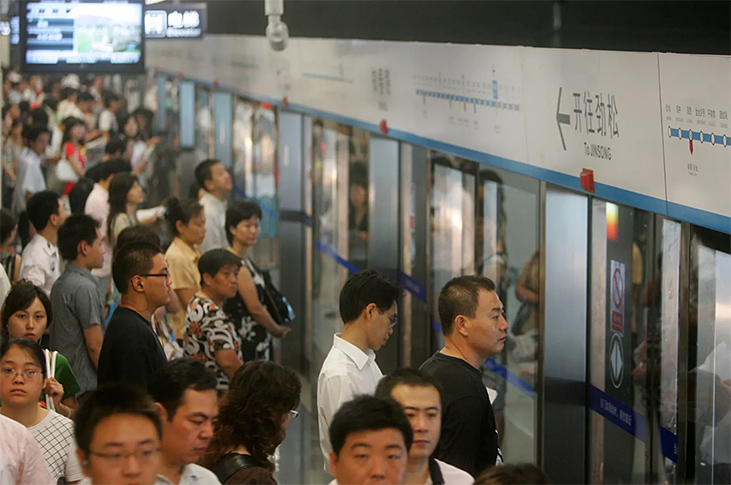A Chinese subway is experimenting with facial recognition to pay for fares — from theverge.com by Shannon Liao
Excerpt:
Scanning your face on a screen to get into the subway might not be that far off in the future. In China’s tech capital, Shenzhen, a local subway operator is testing facial recognition subway access, powered by a 5G network, as spotted by the South China Morning Post.
The trial is limited to a single station thus far, and it’s not immediately clear how this will work for twins or lookalikes. People entering the station can scan their faces on the screen where they would normally have tapped their phones or subway cards. Their fare then gets automatically deducted from their linked accounts. They will need to have registered their facial data beforehand and linked a payment method to their subway account.
From DSC:
I don’t want this type of thing here in the United States. But…now what do I do? What about you? What can we do? What paths are open to us to stop this?
I would argue that the new, developing, technological “Wild Wests” in many societies throughout the globe could be dangerous to our futures. Why? Because the pace of change has changed. And these new Wild Wests now have emerging, powerful, ever-more invasive (i.e., privacy-stealing) technologies to deal with — the likes of which the world has never seen or encountered before. With this new, rapid pace of change, societies aren’t able to keep up.
And who is going to use the data? Governments? Large tech companies? Other?
Don’t get me wrong, I’m generally pro-technology. But this new pace of change could wreak havoc on us. We need time to weigh in on these emerging techs.
Addendum on 3/20/19:
- Chinese Facial Recognition Database Exposes 2.5 Million People — from futurumresearch.com by Shelly Kramer
Excerpt:
An artificial intelligence company operating a facial recognition system in China recently left its database exposed online, leaving the personal information of some 2.5 million Chinese citizens vulnerable. Considering how much the Chinese government relies on facial recognition technology, this is a big deal—for both the Chinese government and Chinese citizens.









